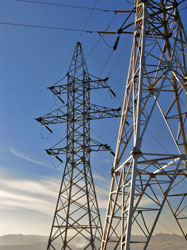Intelligent Load Shedding for Distributed Generation
Load shedding is used in situations when the demand for electricity exceeds the supply in order to maintain the stability of the network. The emergence of Information and Communication Technologies (ICT) has opened the door to intelligent load shedding (ILS). The European Commission has in turn allocated research funds to promote the adoption of ILS techniques. For example, the CRISP project consortium was awarded funding to investigate the application of ILS to power networks with a high degree of penetration of distributed generation (DG). DG is expected to grow in Europe as its Member States ramp up energy production from renewable energy sources (RES). The study, led by ABB Automation Technologies AB, began with an extensive review of load shedding techniques. Threats such as large power oscillations were described in detail. In addition, ABB analysed aspects unique to DG networks. Their findings underlined the need to develop fresh approaches to ILS. In response, three concepts were proposed: smooth load relief (SLR), critical preventing action (CPA) and distributed load shedding (DLS). ABB and its CRISP partners believe these new ILS techniques will be able to deliver the necessary level of stability to Europe's power networks. Further information is available in a summary document.







